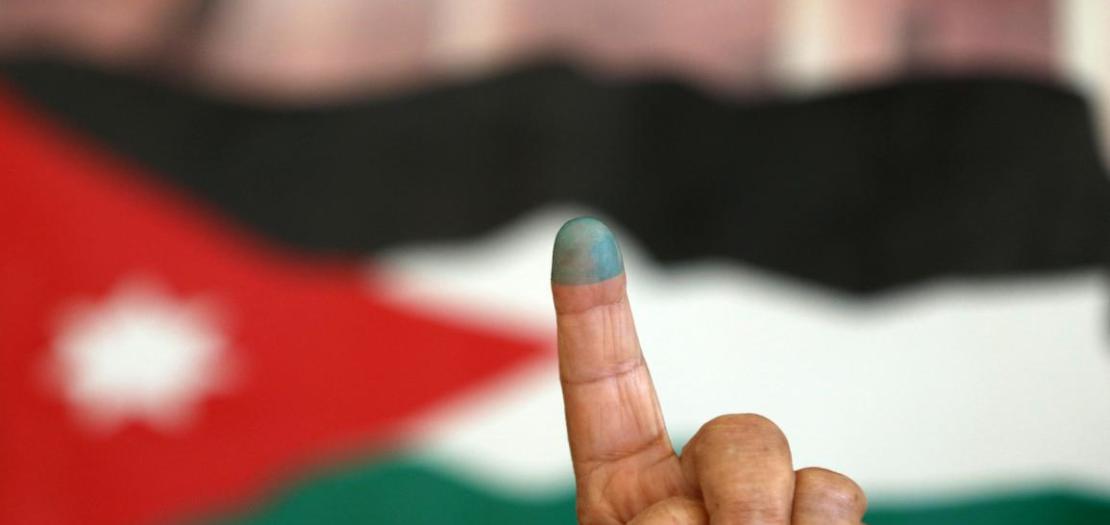Issued by the Catholic Center for Studies and Media - Jordan. Editor-in-chief Fr. Rif'at Bader - موقع أبونا abouna.org
Religion… and the participation in political life
Questions are being addressed nowadays, stating: “What is your role in the Church, and what is the role of the clergy in general in the upcoming parliamentary elections? For this reason, the Cultural Committee of the Sacred Heart of Jesus Church, which is affiliated with the Latin Patriarchate in Tla’ Al-‘Ali, Amman, has held a panel discussion moderated by Dr. Hiba ‘Abbasi that focused on the elections, and how to direct the young generations to participate in them. Members of Parliament as well as specialists in religious and political affairs took part.
I spoke in the first place about the Church’s position, namely urging believers and worshipers to proceed by fulfilling their duty towards their homeland, namely to choose candidates in a wise way, so that the elected members of Parliament would be true representatives of their people in legislation and in monitoring, as well as in helping people complete their transactions with official departments. Good citizenship prompts demanding rights, which is a legitimate claim through peaceful means, but demanding rights goes hand-in-hand with performing duties, so that the attainment of true citizenship is subsequently fulfilled.
In my address, I focused on the fact that the Church, at the start of the electoral campaign, stands at the same distance from every candidate, especially the candidates of the nine Christian seats as stipulated in the Jordanian legislation. The Church does not support one candidate over another as a sign of providing equal opportunities, and in order to regulate its relationship in the future with the elected, as well as with those who were not lucky.
It is needless to underline in this regard the principle of integrity and honest election process, through continuous awareness of staying away from political money, as well as buying and selling votes for this is called “corruption”. It is the duty of religious institutions to urge people to stay away from buying votes, which is the buying of conscience. As for conscience, it is governed at the time of casting the vote, by the person who personally chooses the candidates qualified for political service.
In the aforementioned panel discussion, a consideration was made towards the nine Christian seats, of which seven local seats remained, as has been the case for decades. As for the 8th and 9th seats, they became part of national or party lists, and there is a new mechanism for counting them. The question was raised about transferring the Christian seat in Amman from the third constituency to the second one, as thousands of people did not take note of that, and therefore they did not take the initiative to move their electoral constituency to where the Christian seat is located.
However, it should be noted that the Christian citizens do not vote only for the Christian candidates, as they are equal with all other citizens and can choose the competent candidates whom they discern as capable of serving and painting a positive image for the next Parliament. The responsibility to raise awareness about the duty of going to the polls on September 10 remains a collective one, through which we hope to contribute to raising the percentage of people coming to the polls much more than last time. In 2020, in some constituencies the percentage of voters remained only 11 per cent, which is a very low one, and at that time the Corona virus was used as an excuse. We hope to get rid of the virus of inaction this year, so that the real participation rate of citizens may increase.
I conclude by quoting the message of Emeritus Latin Patriarch of Jerusalem, Patriarch Michel Sabbah, may God give him long life (91 years old), where he sent a message dated July 1, 1993, to the believers in Jordan marking the 1993 parliamentary elections. He stated: “As for the parliamentary elections, we remind the believers of the duty to participate, so that they should not refrain from voting. Let them be governed by their conscience and cast their votes for whoever they see as the best and most appropriate according to their faith and national awareness. Let them in all circumstances maintain mutual love, unity, and harmony, so that parliamentary elections should not lead to fights, defamation, and the destruction of the freedom of others.”
The Patriarch adds: “May whoever finds oneself competent to provide the necessary service, nominate oneself. It is the duty of the believers who are running for parliamentary elections to know that they are nominating themselves to serve the public good, and to serve others before serving themselves. They also have the duty to serve inspired by their faith. They convey the Christian dimension in faith and culture in their Arab Muslim homeland, especially in their homeland, Jordan. What their country and its Muslim and Christian citizens alike demand them is to provide, through their services and political work, the wealth they acquire in their country, homeland and citizens as a whole.”


